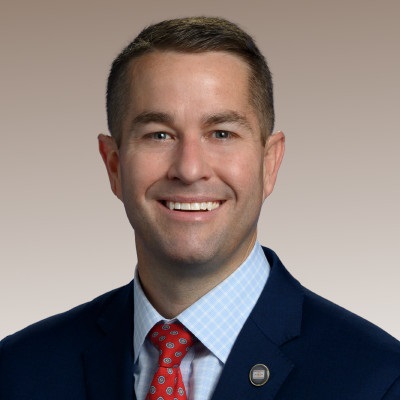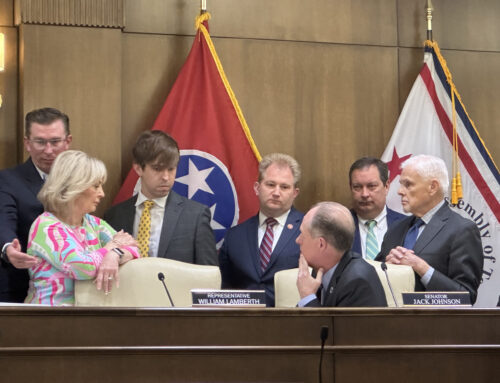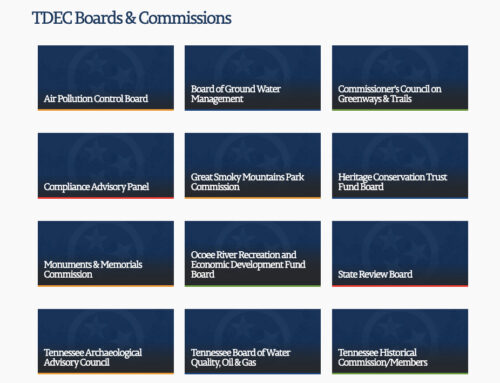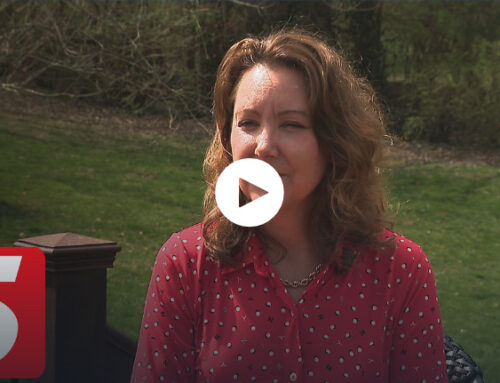A bill that would allow members of hundreds of utility boards across the state to phone into a public meeting and cast their votes is scheduled to go before the House State Government Committee today.
It is one of three pieces of legislation expected to be heard this week that seeks to lift requirements of state law and expand the ability of members of public governing bodies to participate and vote in public meetings electronically without having to attend in person.
The three pieces of legislation have differing levels of standards and requirements for remote participation by governing bodies, but all appear to have been prompted by the pandemic rules which have allowed governing bodies to conduct business by phone instead of in person.
During the pandemic, Gov. Bill Lee lifted requirements of state law and the Open Meetings Act in an emergency order to allow governing bodies to meet electronically to help slow the spread of COVID-19. The executive order remains in effect through the end of April and could be renewed again if conditions warrant.
The utility bill (HB509 by state Rep. Clark Boyd, R-Lebanon, and SB508 by state Sen. Jon Lundberg, R-Bristol) would cement into law the ability of utility board members to participate remotely.
The utility bill has the fewest limits of all three bills working their way through the legislature. A new amendment on the utility bill expected to be introduced today would restrict the members of governing bodies from participating remotely by phone in no more than 20 percent of the meetings in any given year and require a quorum to be present in a physical location.
For example, a utility board with seven members that met 12 times a year would have 14 electronic participation passes, two for each board member. As many as three members could be on the phone as long as a quorum, four members, was present physically at the meeting.
Members of public utility boards decide a wide range of issues from setting electric, water and natural gas rates to exercising eminent domain and expanding critical infrastructure. Some deal with environmental issues and many enter into large contracts and debt structures.
So far, the utility board associations have offered no reason or need for the change other than it would make conducting public meetings more convenient for members of the board.
However, the public would lose access to utility board members who do not attend in person and public business would be voted on, literally, outside the public eye when a phone call is used. Members of the public, however, would be allowed to listen to the member calling in by phone, or through video if video conferencing is used. Meetings conducted with electronic participation would require to be recorded.
If the Legislature approves the bill, it would mark a significant change in policy for local governing body meetings.
It would be the first time the Legislature will have given a free pass to members of a local governing body to participate and vote in meetings remotely without having any accountability or criteria tied to a need or reason.
TCOG has suggested that proposals to permanently allow governing bodies to participate and vote in public meetings electronically require more study and consideration by various stakeholders. TCOG has suggested that the issue be studied by the 14-member Advisory Committee on Open Government, which was established in 2008 with seven members from organizations representing public interests and seven members from government associations. All the members are selected by the Comptroller. (Last year, ACOG produced a report on the impact of confidentiality of college presidential searches and delivered it to the General Assembly.)
TCOG is tracking two other pieces of legislation this week that would expand electronic participation:
- SB301 / HB327. This bill would allow members of the 95 county legislative bodies to attend, participate and vote in meetings electronically by phone or video conference if they meet a qualified reason (family emergency, medical emergency, out of the county for work, called into military service). An amended version of the bill would expand it to all the state’s municipal governing bodies, making the bill have an even wider impact on local communities. TCOG opposes the bill but supports asking the Advisory Committee on Open Government to study this issue over the summer and present a report to the General Assembly. This bill is being carried by state Sen. Richard Briggs, R-Knoxville, who is chair of the Senate State and Local Committee, and state Rep. Dave Wright, R-Knoxville. The bill is expected to be heard Wednesday in both the Senate State and Local Committee and the House Finance, Ways, and Means Subcommittee. It has been passed by the House Local Committee.
- SB971 / HB1029. This bill may be amended to allow county and municipal governing bodies to meet and conduct business by any electronic means if the governing body determines it needs to in light of COVID-19. It would transfer the ability to suspend state laws to allow electronic participation in meetings during the pandemic to individual governing bodies, instead of relying on the governor’s executive order to allow it. TCOG opposes the proposal unless the amendment brings accountability to a governing body who continues to meet electronically without trying to create a reasonably safe environment for a public meeting.





